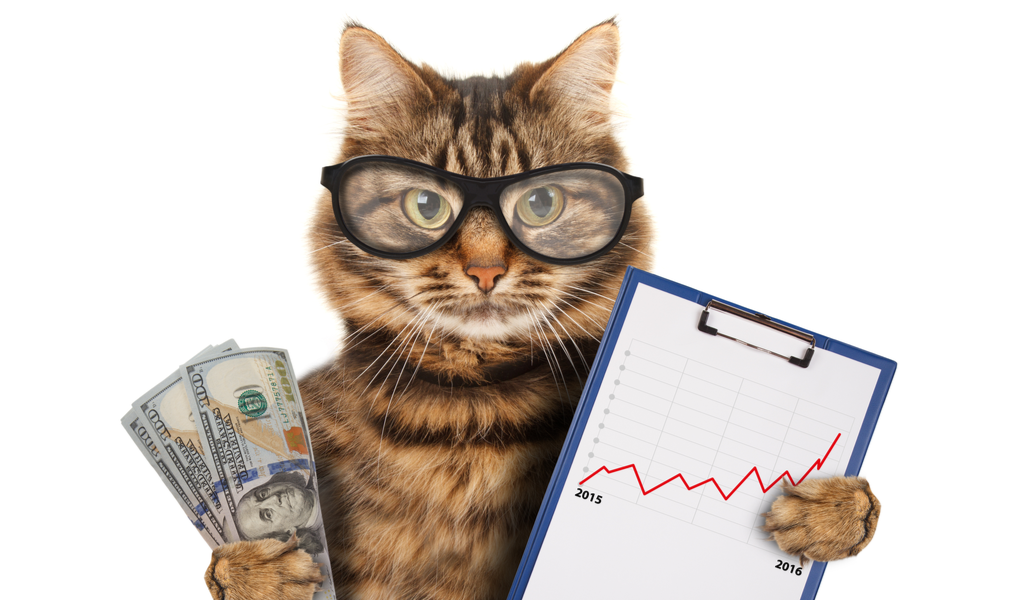If you are a pet owner, you know that caring for them seems like a full-time job. Proud pet parents know how much time and money goes into it, but unfortunately, the IRS doesn’t allow you to claim pets as dependents.
But all is not lost when it comes to financial relief for pet owners. According to Pawlicy Advisor – the pet insurance marketplace – there are several tax deductions that may get you a nice reduction in your taxes. Regardless of if you have been a long-time pet owner, or if you are one of the millions of households who took one of these loving creatures into your home during the Covid-19 pandemic, here are some pet-related tax breaks that you might be eligible for.

Tax Deductions for Service Animals
If you have a service animal at home, you can avail of a tax break under the Medical Expense deduction. Qualifying for this deduction requires you to have spent at least 7.5% of your adjusted gross income on medical expenses over the course of the year.
You must also prove that your pet helps you in a medical capacity or helps perform certain activities. For instance, hearing or sight-impaired persons use guide dogs – which would make them eligible for the tax break. Similarly, veterans or others who suffer from PTSD, depression, and other mental illnesses may have ESAs or Emotional Support Animals. The costs that go into caring for these animals can be cited for tax breaks as well.
All pets provide emotional support to their owners, but not all animals can be classified as service animals or ESAs. In general, you must have proof, such as a doctor’s note, in case the IRS decides to question your claims.
Tax Deductions for Performance Animals
Animals are frequently featured in TV, movies, advertisements, and more. And these furry friends who lend their talents to the camera – or, at least their owners – can make a lot of money through their work. Such pets are considered to be performance animals, which could make you eligible for a tax break related to the same.
You may be a YouTube star who frequently features their pets on camera, and if your sassy cat is the star of your monetized show, you can claim tax deductions by classifying them as a performance animal. You will need to religiously collect the receipts related to caring for them, and you will need to prove that the pet actively contributes to your income. Think of Instagram’s Tika the Iggy, who has over 1 million followers – her owners are probably making a killing and saving loads of money through tax deductions!
But if your pet is just lying around in the background while you film yourself, you probably can’t deduct their care.
Similarly, if you are a jockey that makes a living racing horse, you can count them as performance animals (even if you are not doing the riding yourself and are only the horse owner who rents them out to professional jockeys). But if you ride horses as a hobby, that’s not counted.
Tax Deductions for Working Animals
We already saw how being the owner of a performance animal can help you get a tax break. However, you don’t have to be the pet parent to the next Lassie to get a tax break!
In fact, animals used for business purposes outside the entertainment field can also help you get a tax break. Think of petting zoos or one of those cat and dog cafes. As these animals are the selling point of such businesses, they can be considered a business expense.
To claim such a thing, you would have to hold on to every receipt that goes into the feeding, grooming, housing, etc. of these animals. You should also keep records of how long these animals spend at the place of work. In a nutshell, you must be able to prove that your pet/s is a necessary part of your business, so taking your dog to work one day doesn’t count!

Tax Deductions for Fostering Pets
Foster parents to our furry friends are also eligible for a tax break under charitable donations, provided that the animals come from a qualified nonprofit. While most nonprofits provide those who foster the pets with costs related to food and veterinary care, but pet parents who love to splurge can claim tax deductions on any out-of-pocket expenses they may make.
Unfortunately, the government doesn’t provide a tax break if you take in an animal wandering the streets or look after your friend’s pets while they are away.
But if you are a volunteer working for a nonprofit organization such as an animal shelter or rescue organization, you can claim any expense incurred during the course of the volunteer work through tax deductions. This includes costs such as fuel, which would require you to keep track of the mileage. Keep in mind that this only applies to the period of time you spend driving in service of the organization’s mission, and not your commute.
Tax Deductions for Pet-Related Moving Expenses
If you are a pet owner who has planned to move to another city for a new job in the near future, you may be eligible for tax deductions related to your pet’s travel expenses. However, the IRS has outlined certain criteria that must be fulfilled in order to claim this tax break.
For instance, the date of the move must be close to the date of joining your new job, and the primary job location must be at least 50 miles farther from your previous place of residence than your previous job location. You are also required to work full-time for a minimum of 39 weeks during your first year at the new job before you can claim this deduction.
While all of the pet-related tax breaks are often awarded to owners of service animals or performance animals, it is still a good thing to be aware of them so that you can make the best of what is presented to you in case you are eligible for any of them. You could write off various expenses relating to the caring of your pet, from food and shelter to medical expenses, training, and other supplies.
Talk to your financial planner or other tax professionals if you think any of these tax deductions may be applicable to you. Most people probably don’t get pets with the sole intention of getting a tax break, but if you are given the chance to save some of your hard-earned money, why wouldn’t you!



